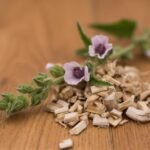Common Myths About Botanical Medicine Debunked
Botanical medicine has been used for centuries, but it’s often surrounded by myths and misconceptions. From its effectiveness to its safety, misinformation can prevent people from fully embracing the benefits of this natural health practice.
Here, we’ll explore and debunk some of the most common myths about botanical medicine to help you make informed decisions.
Myth 1: Botanical Medicine Is Always Safe
Reality:
While botanical medicine is natural, it doesn’t mean it’s always safe. Some plants can be toxic if taken in large doses or used improperly. For example, herbs like comfrey or ephedra can cause serious side effects when misused.
Tip: Always consult a qualified healthcare professional before starting any herbal remedy, especially if you’re pregnant, nursing, or taking medications.
Myth 2: Herbal Remedies Are Ineffective
Reality:
Scientific studies have validated the effectiveness of many herbal remedies. For example:
- Echinacea can boost immune function and help reduce cold symptoms.
- Turmeric (curcumin) has anti-inflammatory properties backed by research.
However, effectiveness depends on factors like dosage, preparation, and individual body chemistry.
Myth 3: Botanical Medicine Works Immediately
Reality:
Unlike pharmaceutical drugs, botanical medicine often works gradually. For example, adaptogens like ashwagandha and rhodiola may take weeks to show noticeable effects. This slower action supports the body’s natural healing process rather than masking symptoms.
Tip: Patience is key when using herbal remedies. Follow the recommended dosage consistently for best results.
Myth 4: All Herbal Supplements Are the Same
Reality:
The quality of herbal supplements varies greatly. Factors like sourcing, processing, and manufacturing standards can impact the product’s effectiveness. For instance, organic, sustainably sourced herbs are typically more potent and safer.
Tip: Choose reputable brands with certifications like USP or NSF to ensure product quality and purity.
Myth 5: Botanical Medicine Is Only for Minor Ailments
Reality:
Botanical medicine can address more than just minor issues like colds or indigestion. It’s used in managing chronic conditions, such as:
- Arthritis (using anti-inflammatory herbs like turmeric).
- Anxiety and stress (with adaptogens like ashwagandha).
- Cardiovascular health (with herbs like hawthorn).
However, these remedies should complement, not replace, conventional treatments.
Myth 6: Botanical Medicine Is Outdated
Reality:
Far from being outdated, botanical medicine is thriving in modern healthcare. Many pharmaceutical drugs are derived from plants, such as:
- Aspirin (from willow bark).
- Morphine (from opium poppy).
Modern research continues to uncover new applications for traditional herbs, bridging ancient wisdom and scientific innovation.

Myth 7: You Can Self-Diagnose and Treat with Herbs
Reality:
Self-diagnosing and treating with botanical medicine can be risky. Without proper guidance, you may misuse herbs or overlook underlying health conditions. For example, symptoms like fatigue could result from anemia, thyroid issues, or other serious conditions that require medical attention.
Tip: Work with a certified herbalist or healthcare provider to ensure safe and effective use.
Myth 8: Botanical Medicine Has No Side Effects
Reality:
While generally safer than synthetic drugs, botanical remedies can still have side effects. For instance:
- St. John’s Wort can interact with medications, reducing their effectiveness.
- Ginger may cause stomach upset in some individuals when taken in high doses.
Understanding potential side effects and interactions is crucial for safe usage.
Conclusion
Botanical medicine offers incredible potential for natural healing, but separating myths from facts is essential. By understanding its limitations and benefits, you can use herbal remedies safely and effectively.



